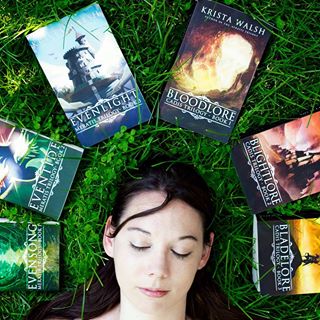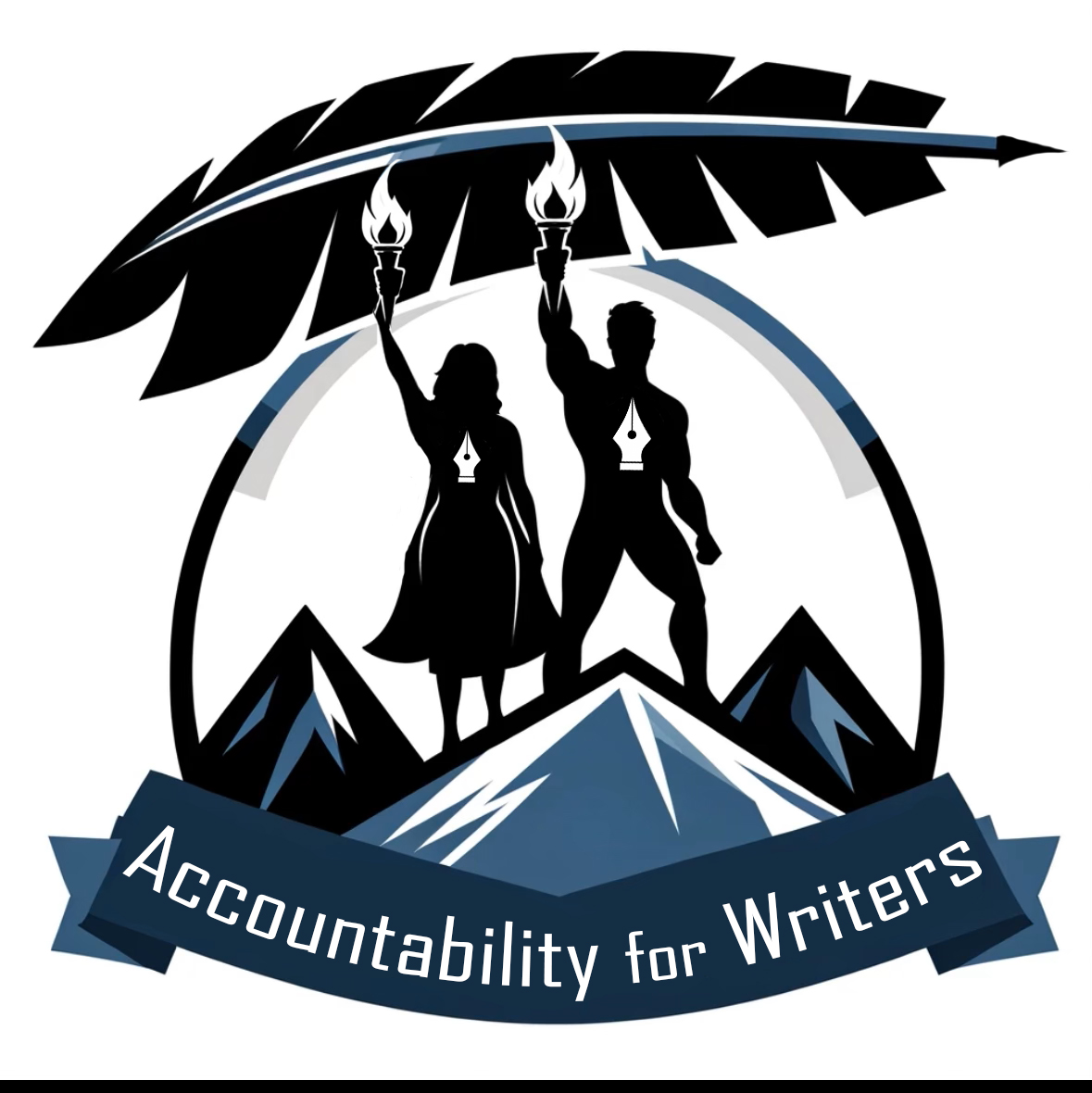Interview with Author Krista Walsh on: Showing Up For Your Art (pt 1)
I recently had a chance to catch up with Krista Wash, author of the wonderful Meratis and Cardis Trilogies, The Invisible Entente Series, and the Witch Hunt Series. I asked this popular indie author a lot of questions, from how she shows up for her art, to how she prepares for launch, and even how she markets her books. This will be a 5-part series exploring how this talented author shows up for her art. I hope you enjoy it!
If you haven’t read Krista’s work yet, well, get to it – you won’t regret it. Now, let’s dive in!

Krista Walsh Bio:
Known for witty, vivid characters, Krista Walsh never has more fun than getting them into trouble and taking her time getting them out. When not writing, she can be found walking, reading, gaming, or watching a film – anything to get lost in a good story. She currently lives in Ottawa, Ontario.
Laura: How do you develop your ideas?
Krista: It’s a process, and one I’m still developing. I usually start with a character with a problem and branch out from there. Sometimes it’s stream of consciousness notes, sometimes an idea web, a “what if” chart, random scenes on cue cards…
Laura: Are you a plotter or a pantser?
Krista: I used to be a certified pantser. I’d have a few ideas for scenes I needed to hit throughout the story, but never dug much deeper than that. Lately, my process has been changing a lot. With each new book, it seems. The more craft books I read, the more it evolves, and now I’m a dedicated outliner.
Laura: Any tips or suggestions on plotting or pantsing?
Krista: Regardless of preferred method, I think a blueprint is essential. Not an outline, but the beats a story needs to hit to make sure the structure is sound. Pantsing is a lot of fun, and sometimes I still throw up my hands with short stories, but the end results are a lot stronger (and require fewer rewrites) when the beats are lined out.
Laura: Do you write daily or when inspiration hits?
Krista: When I’m drafting I write daily. The word count can change, but I make sure to get in at least 1k a day. I find it’s easier to keep going once I’ve started. As soon as I take a day off, it becomes more of a challenge to get back into the flow of a story.
That said, during non-drafting periods (edits, brainstorming sessions), I’m a lot more forgiving of myself in terms of actual word count. Then it’s all about daily goals (editing) and letting my imagination run wild (brainstorming)
Laura: How do you push through blocks, or even just the drudge-work aspects of writing?
Krista: You can find ways through those?!
Generally, I find music works. Usually while I’m drafting, I develop a soundtrack that goes with the story. If I get stuck, I throw on my headphones and go for a walk. On a good day come home with at least one bit of dialogue or one scene that I jot down on a cue card. Having the new idea usually excites me enough to get back into it.
During edits, I break my tasks down into bite-size pieces so it doesn’t seem so overwhelming.
Laura: Character or plot driven?
Krista: Character, for sure. For me, the plot is just how I get the character up the tree. The real fun is watching the squirm as they try to get back down.
Laura: Favorite type of hero? Villain? Anything else you LOVE to see in a work?
Krista: In hero or villain (especially in those grey characters that don’t fall on either side), I love intelligence. Sherlock Holmes, Tyrion Lannister, Hannibal Lecter — I’m a sucker for a character who knows how to outwit the people around them. They’re such a challenge to write, but one day I’ll get there!
Laura: Oh yes, I relate – me too!
Laura: Favorite genre to write for?
Krista: Fantasy! It didn’t start out that way. My first attempts at fiction were solidly literary. That was what I read, so that was what I wrote. Then magic crept in and I haven’t gone back.
Laura: Do you sprint, participate in NaNoWriMo, or use other motivation or supports?
Krista: NaNoWriMo is a fantastic event, and I jump on all of them throughout the year. It’s how I trained myself to get a first draft done in a month on a regular basis (which, again, helps if you have the blueprint in front of you so you know where you’re going). I also have some groups of Facebook that help keep me focused on days where my brain just isn’t having it.
Laura: Who or what helped you get to your first and/or last book?

Krista: My mentor getting started with Colin F. Barnes. He convinced me to walk the plank into indie publishing, and I’m grateful that he did. Lately, I wouldn’t be able to get through the process without fellow author Kate Sparkes, who’s great at talking me down from those ledges.
Laura: Kate’s awesome, we featured an interview with her here last month! I feel like you definitely need that kind of writing support, it makes all the difference. Ok – next question: Why do you write?
Krista: Because I need to. Because I can’t imagine a life where I didn’t. I have pictures of myself writing stories at six years old, writing novel-length fan-fiction stories at fourteen, my first novel written at eighteen (none of those will ever see the light of day). It’s my catharsis and passion, and I love it.
Laura: Love it – great answer. As a reader of your work, I can say it shows! You’re clearly one of those people who was born to write.
This is the end of part 1 of the 5-part interview with Author Krista Walsh on Showing Up For Your Art. Stay tuned for part two, where Krista answers questions about “Perfecting The Product.”
Find Krista:



